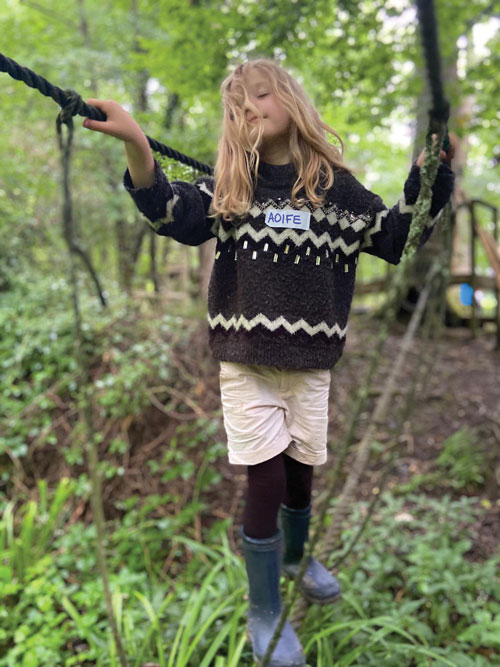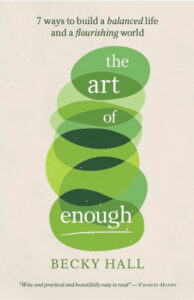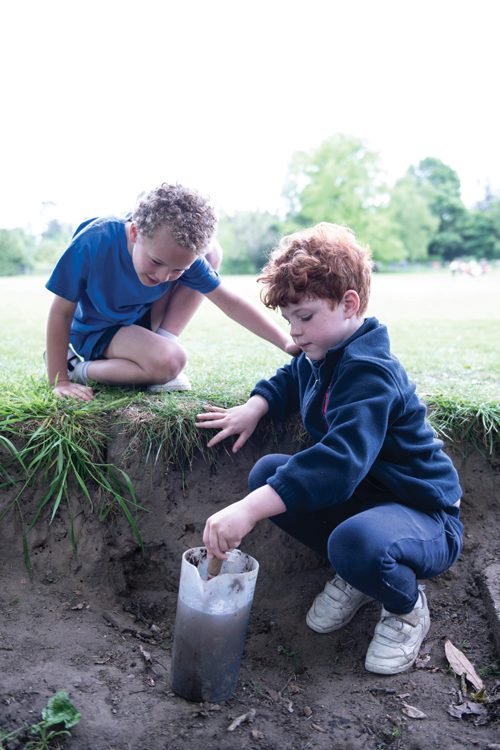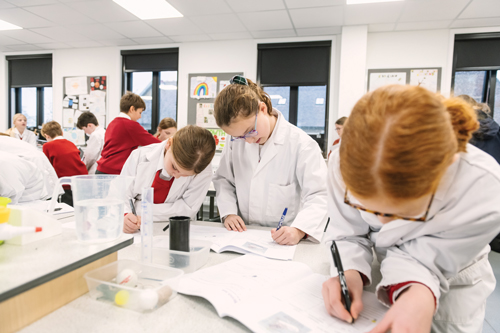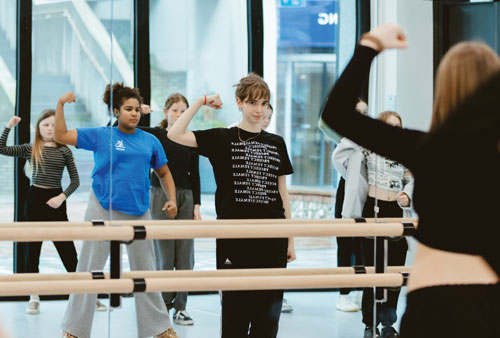
by Project Female Dance Ambassador
Empowerment is a sort of internal permission, a confidence instilled by either yourself or the situations you find yourself in. It is defined as “authority of power given to someone to do something”. As a young person, empowerment can act as an important remedy to the societal pressures faced daily.
It feels like expectations of perfection lurk around every corner for young people. They turn on their phone and are bombarded with unrealistic images of perfection. In class there is the feeling that they would rather not raise their hand than answer incorrectly in fear of classmates and teachers thinking they’re stupid. Even at home there seems to be an expectation held by parents for their child to be a certain way. All of these experiences equate to a society of young people who are paralysed by insecurity.
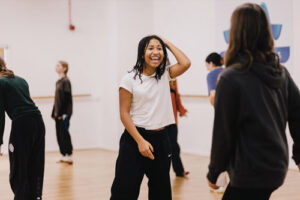 Empowerment has the potential to liberate young people from these expectations and pressures. Empowerment enables young people to find their voice, their place in this world and feel important and heard. Empowerment is the enemy of insecurity, and through engaging with activities and communities that make young people feel empowered, they grow in a confidence that can be applied to every aspect of their lives.
Empowerment has the potential to liberate young people from these expectations and pressures. Empowerment enables young people to find their voice, their place in this world and feel important and heard. Empowerment is the enemy of insecurity, and through engaging with activities and communities that make young people feel empowered, they grow in a confidence that can be applied to every aspect of their lives.
Inclusive spaces committed to creating a judgement free environment, allow young people the permission to be confident, to have fun without concern for what other people in the room are thinking and be empowered in a way they don’t often experience elsewhere. We see the relief young people experience when they are able to put all of those pressures and expectations aside and just focus on being in the room and enjoying the activity with people they feel respected by.
With a physical activity like dance, an inclusive space mobilises a type of empowerment that encourages creativity and freedom without the fear of judgement. Movement within dance is choreographed to be unique and can sometimes push you out of your comfort zone. Empowerment can be used as a tool to get over that feeling of awkwardness and express your individuality. Within an inclusive dance space there is no expectation of how you should look or act and a nurturing environment is created through the knowledge that you are surrounded by people who share similar interests and experiences. Empowerment in dance is extremely important as it gives the dancers permission to freely throw their bodies around, take risks and try new things confidently.
The young people we work with have said dance has made them feel more empowered. They’ve reflected that dance validates them when they’re feeling down or insecure. It distracts and offers them a creative escape when the pressures of society become too much. It motivates them to keep improving. The confidence they experience within the four walls of the studio becomes evident in other aspects of their lives such as school and socially.
Everyday we witness dance instilling and securing a sense of empowerment within the young people we work with.
Project Female offers a range of inclusive dance classes for 4 year olds to adults. Learn new routines, build confidence and develop creativity and expression in a fun environment. www.projectfemaleuk.co.uk

